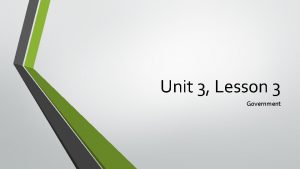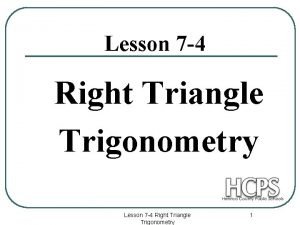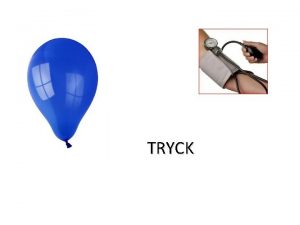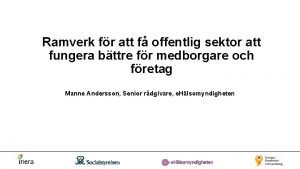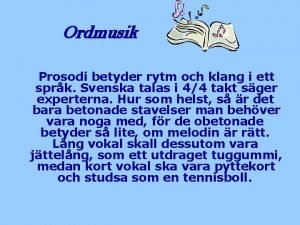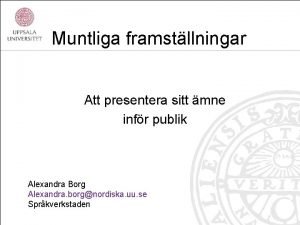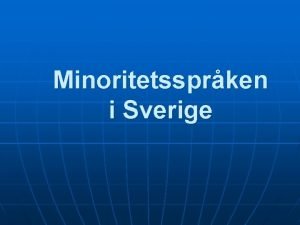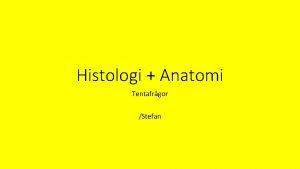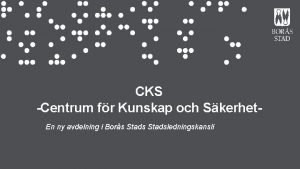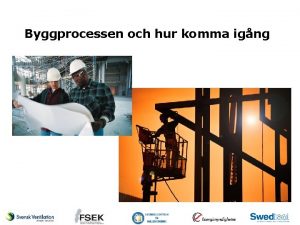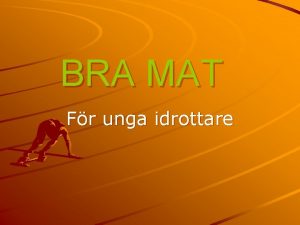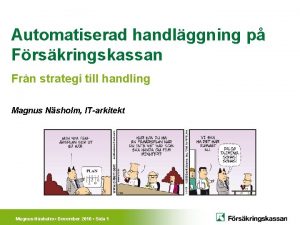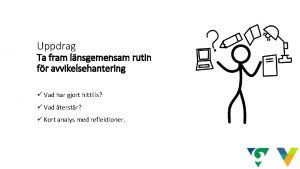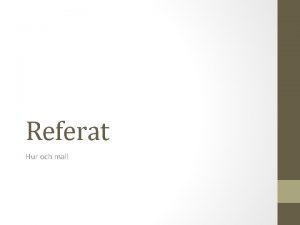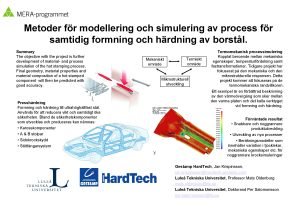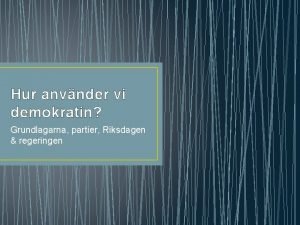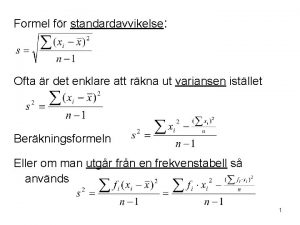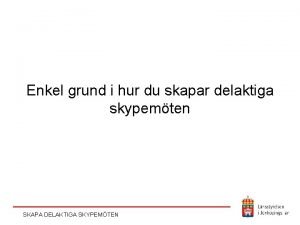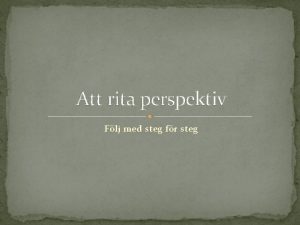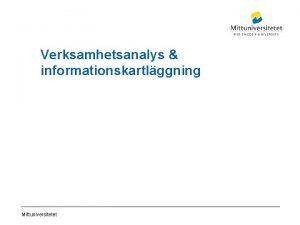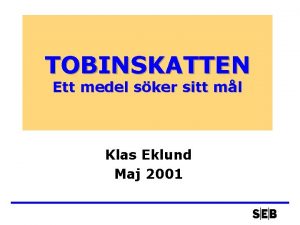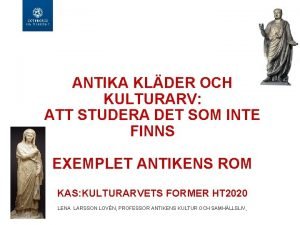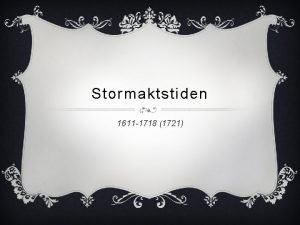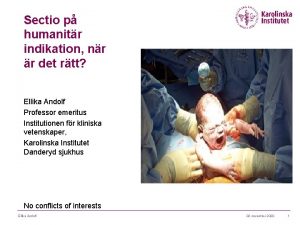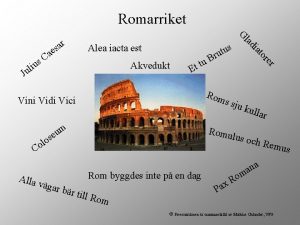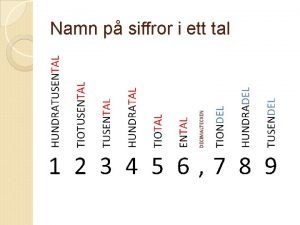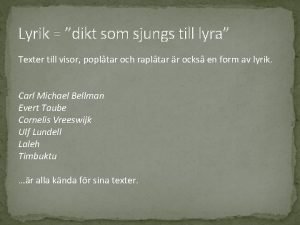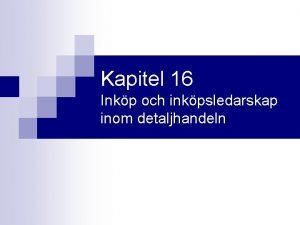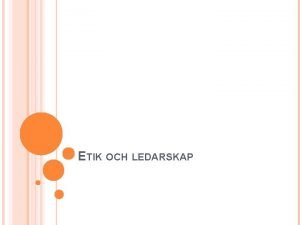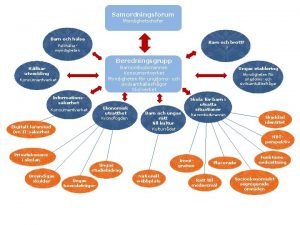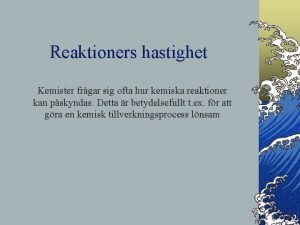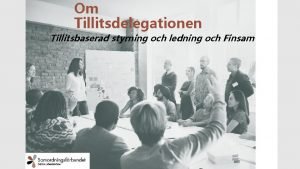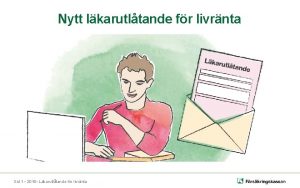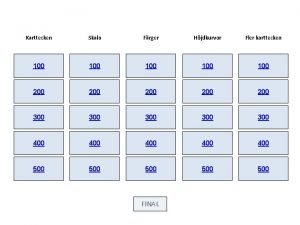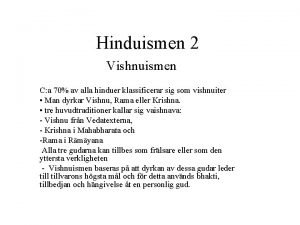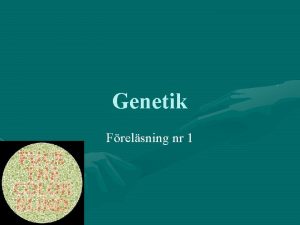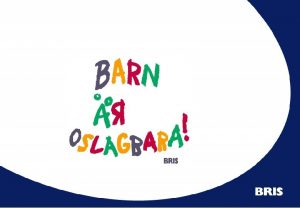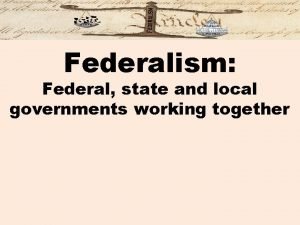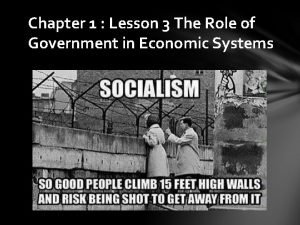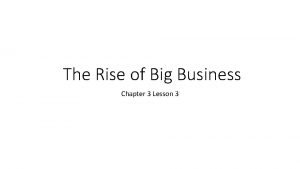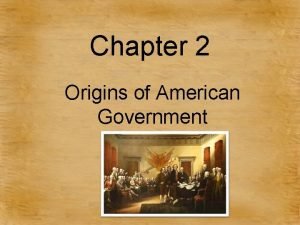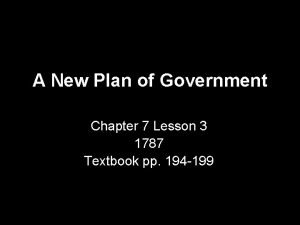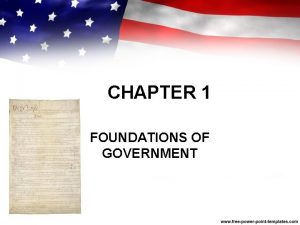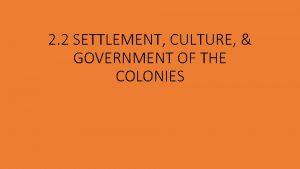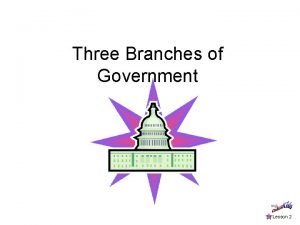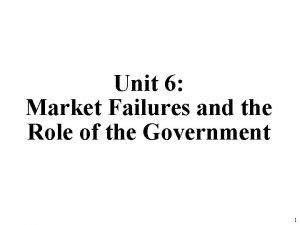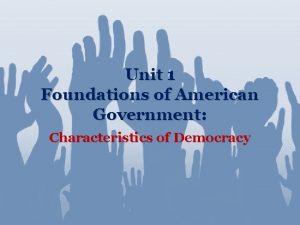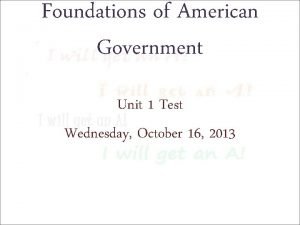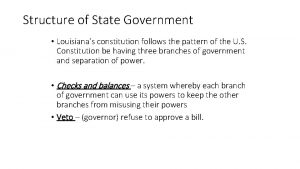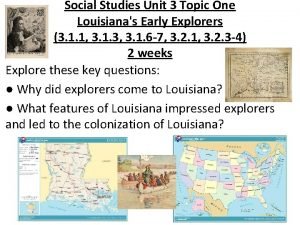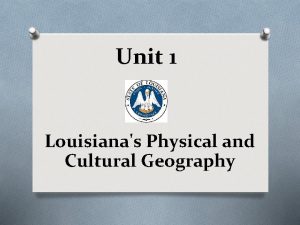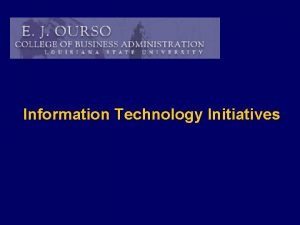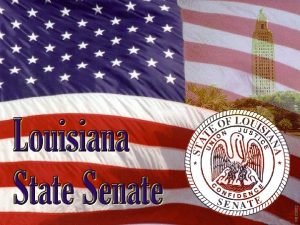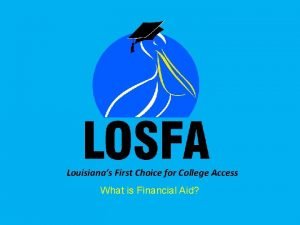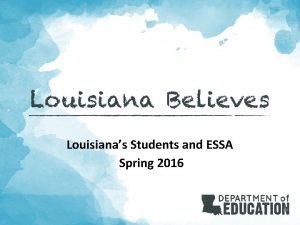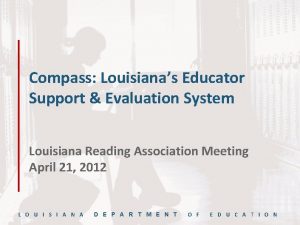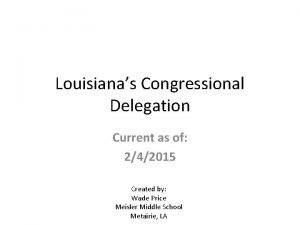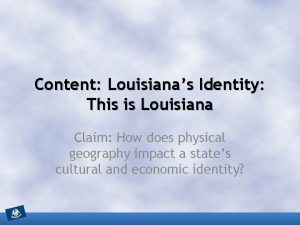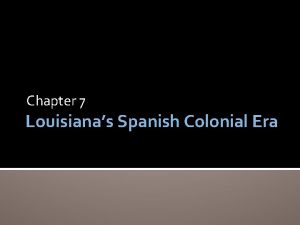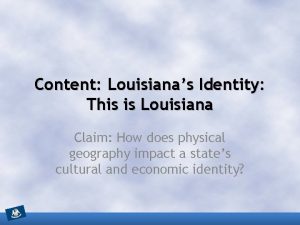Unit 3 Louisianas Government Lesson 1 Government for





















































































- Slides: 85

Unit 3 Louisiana's Government Lesson 1 Government for All People Lesson 2 Articles of Confederation

Lesson 1 and 2 Objectives: n. I can Recognize the purpose of Government n. I can Identify and describe various types of government n. I can Explain why the United States Adopted a federal republic n. I can Describe the articles of confederation and explain why they were too weak to succeed

Government for All People Governments maintain order, provide protection, and promote economic growth.

Forms of Government • Ancient Greeks developed a democracy-a system in which every citizen votes, and decisions are made by majority rule • During the Middle Ages, England France created monarchieswhere one person, usually a king or queen, rules and makes all the important decisions. • Oligarchies-only a few powerful people ruled • Dictatorship-one person has complete control over the government • The form of government in the US is a representative democracy. • A representative democracy is when citizens elect representatives to make laws for them. Another name for representative democracy is a republic.

Extra Information • An Oligarchy is a form of government controlled by a group, council, or a board of directors. Oligarchies typically have no constitution nor charter - and the CONTROLLERS have the freedom to rule however they see fit. Citizens have no vote and must put up with whatever their tyrannical rulers decide to do with them. China and Russia, are almost all oligarchies.

The Federal Government • The US adopted a federal republic-government that is divided between federal, state, and local government. • Voters elect for representatives, and decisions are made by a majority rule of the representatives voters have chosen.

The Federal Government • Our nations government is a single body called the federal government. Purpose is to carry out functions that are too much for local government. ▫ ▫ It establishes uniform rules and regulations to keep society and the economy running. Regulates interstate trade establishes laws that affect every state Enter into a treaty with another country

Articles of Confederation • First federal government was based on the Articles of Confederation. • States had most of the power • the federal government was too weak to maintain control • This caused economic problems… 13 different currencies? !? • Nation almost collapsed

Articles of Confederation • First federal government was based on the Articles of Confederation. • Founding fathers were afraid of government becoming too strong like England. • States had most of the power • Because the federal government was too weak to maintain control, states were competing rather than working together. • This caused economic problems, and it was feared the nation would collapse if something wasn't done.

Closure n. What went wrong with the Articles of Confederation? n. Prove who holds the power in the United States today

Example: Anarchy • No government at all • Every person is left to fight for themselves • People must continue to live through farming on their own land, find water, and build a home on there own. • No one tells you what to do and there is no voting. • People fighting over food, water, land other things. There is no police to keep the peace.

Communism • Communism is a political and economic system in which the major productive resources in a society—such as mines, factories, and farms—are owned by the public or the state, and wealth is divided among citizens equally or according to individual need.

Ten important aspects of a communist government • • • No private property A single central bank High income tax that would rise significantly as you made more All property rights would be confiscated No inheritance rights The government would own and control all communication and transportation The government would own and control all education The government would own and control factories and agriculture Farming and regional planning would be run by the government The government would tightly control labor

Lesson 3 Objectives: • I can Identify the reasons the Constitutional Convention was held. • I can Create a classroom constitution • I can Name the first section of the U. S. Constitution and summarize its contents. • I can Examine the Bill of Rights and discuss how it protects civil rights.

The Constitution of the United States n The Constitution has it roots in the ideas of 3 civilizations: ▫Greece ▫Britain ▫Rome GLEs: 18, 19, 39, 40

The Constitution of the United States • Greece – from Greece the constitution got democracy. Democracy is rule by the people. • Rome – from Rome the constitution got a republic. A republic is when the people elected representatives to make laws for them. • Britain – from Britain the constitution got the concept of having a bicameral legislature. A bicameral legislature is one that has a 2 house legislature.

The Constitutional Convention 1787 • Determined the Articles of Confederation were too weak

A New Constitution • Was stronger than the Articles of Confederation. • The English government was a monarch where kings had absolute power and believed God placed them on the throne. • New Constitution to create a government that could maintain order and protect people, but not be oppressive. • power must be based on the consent of the people, who had the right to change the government. • government should be based on law and operate within the limits of the Constitution.

The U. S. constitution Preamble: Introduction, states goals

Parts of the Constitution Continued Articles: Body of Constitution ▫ outlines the US government. Amendments: Changes to the Constitution § Amend = to change § 27 Amendments (changes) to the Constitution § 1 st 10 are the Bill of Rights Constitutional Amendments: is one way that the democratic process has been used to make official changes in Louisiana's state government policies

Bill of Rights • The framers of the Constitution added ten amendments, and called them the Bill of Rights. • The Bill of Rights guarantees all citizens basic rights.

U. S Constitution Preamble Click Below

Louisiana's Constitution Preamble We, the people of Louisiana, grateful to Almighty God for the civil, political, economic, and religious liberties we enjoy, and desiring to protect individual rights to life, liberty, and property; afford opportunity for the fullest development of the individual; assure equality of rights; promote the health, safety, education, and welfare of the people; maintain a representative and orderly government; ensure domestic tranquility; provide for the common defense; and secure the blessings of freedom and justice to ourselves and our posterity, do ordain and establish this constitution.

United States Preamble We the people of the United States, in order to form a more perfect union, establish justice, insure domestic tranquility, provide for the common defense, promote the general welfare, and secure the blessings of liberty to ourselves and our posterity, do ordain and establish this Constitution for the United States of America.

Closure: Did we…. . n identify the reasons the Constitutional Convention was held? n name the first section of the U. S. Constitution and summarize its contents? n I can examine the Bill of Rights and discuss how it protects civil rights? n Find the major difference between the U. S. Constitution preamble and the Louisiana Constitution preamble?

Lesson 4: Checks and Balances

Lesson 4 Objectives • I can Discuss checks and balances and separation of powers. • I can Identify the three branches of government and explain the purposes of each. • I can Describe how the Electoral College works and why it was adopted. • I can Analyze Electoral College data and formulate an opinion about its effectiveness and need today • I can Construct and argument about the electoral college and support it with facts in the form of an editorial

Checks and Balances • Means power is spread amongst the different branches of government so no one branch becomes too powerful or abusive • Created 3 branches of government—Executive, Legislative, and Judicial GLEs: 18, 20, 21, 28, 29, 31, 34, 35

http: //www. cyberlearning-world. com/lessons/checks. and. balances. chart. answers. jpg

Branches of Government

Branches of Government Executive • The president is the commander-in-chief of the military. • He or she nominates federal judges and ambassadors, proposes a budget, signs bills into law, and make domestic and foreign policy for the nation.

Branches of Government Executive • • • The president also appoints cabinet members who advise and lead their respective departments. The vice president presides over the Senate and assumes the office of president if the he or she dies or is unable to fulfill official duties. The primary goal of the executive branch is to enforce the laws.

Roles of the President • The president plays a number of different roles in government, each of which has a specific power. • Chief executive – carry out nations laws • Chief diplomat – direct foreign policy • Commander in chief – send troops to other parts of the world (cannot declare war) • Chief of state – representative of all Americans • Legislative leader – propose laws to congress

Legislative Branch • Congress, which includes the Senate and the House of Representatives, is responsible for passing laws and taxes. • 100 US senators and 435 House of Representatives • Members of Congress and senators serve on committees, attend fact-finding hearings, and participate in debates. • The members have the power to declare war and impeach federal judges or the president. • The Senate has to ratify treaties with foreign nations and approve presidential nominations.

Congress ▫ The House of Representatives: 435 members, # is based on the states population ▫ Senate: Each state gets 2 = ▫ 100 members total

Judicial Branch • Includes the Supreme Court and the federal court system. • Judges who hold their positions for life are nominated by the president and approved by the Senate. • They pass judgment on matters of law and settle disputes between the executive and legislative branches. • They decide if laws passed by Congress are constitutionally legal. • People can appeal state court decisions to the federal court.

Political Parties • A political party is a group of people who share a lot of the same ideas about government. • The work together to get candidates with the same beliefs elected to office. • Two Main parties in the US ▫ Democrats-Donkey ▫ Republicans-Elephant GLEs: 36

A Two-Party System US has usually had two political parties ▫ Democrats and Republicans The Democratic Party is considered more liberal and more representative of the working class. Supports a large government The Republican Party is considered more conservative. Supported by business interest and industry. Believe government has become too large

Political party symbols

POLITICAL PARTIES Louisiana • DEMOCRAT • REPUBLICAN • LA MOSTLY DEMOCRAT(BR/ NOLA) • LA VOTES • REPUBLICAN

Political Parties • Elephant • Donald Trump Donkey. Hillary Clinton • Libertarian • Gary Johnson Green Party. Jill Stein

THE ELECTORAL COLLEGE

The Electoral College • Founding fathers were worried people would choose a candidate based on emotion, not the persons qualifications, so the Electoral College system was created.

Electoral College • Each state had a number of electors equal to the number of senators and representatives from their state. • Today political parties select their electors. • When we vote for a presidential candidate, we are actually voting for the candidates electors. • It is possible for a candidate to win the popular vote in the United States, but not get enough votes in the Electoral College to become president.

Why Do We Need The Electoral College? • U. S. NEEDED A System of checks and balances for voting • To give states with a small population more of an equal weight in the election. • They didn’t trust the common man to make an informed decision on who would be the best president.

Electoral Voting • EVERY STATE GETS 1 VOTE FOR EACH OF ITS U. S. SENATORS AND REPRESENTATIVES • LA HAS 2 SENATORS AND 6 HR MEMBERS = 8 ELECTORAL VOTES FOR LA

IN ALMOST ALL STATES THE CANDIDATE WITH THE MOST POPULAR VOTES WINS THE ELECTORAL VOTE

A CANDIDATE MUST RECEIVE 270 ELECTORAL VOTES TO WIN

Lesson 5 Taxes and Local Government

Lesson 5 Objectives • Can students identify current government leaders at the state, local, and national levels in the United States? • Can students describe ways by which public policies are formed, including the • Can students identify types of taxes collected by the local, state, and federal government? • Can students identify various types of taxes and user fees and predict their consequences?

Taxes • Federal and state government can impose an income tax. • Parish and local government can impose property taxes • All parts of the government rely on taxes to fund government programs and activities

Local Government Level of government closest to the people

Local Government Units • Parishes • Municipalities • Special Districts

Provides basic services directly affecting the daily lives of every citizen • Police • Fire • Sewage Disposal • Libraries • Street Maintenance • Garbage Collection • Public Education • Jail (Courthouse)

L. A. has had 64 parishes since 1912. Parish Government and courthouse are located in the town or city known as the PARISH SEAT.

Types of Parish Government Police Jury & Home Rule Charter

Police Jury Supervise the parish Forty-six of the state's 64 parishes operate under this form

POLICE JURY n 5 TO 15 Elected Members n. Passes (ordinances) local laws n. Creates special districts (fire, levee, water)

Home Rule Charter 18 Parishes operate under home rule charters including 4 city-parish consolidations, Orleans, East Baton Rouge, Terrebonne and Lafayette.

City of Baton Rouge and East Baton Rouge Parish • Combined Government • 7 council members are elected from districts within the city and 5 elected from districts outside the city.

Which type of Parish Government is more Powerful? Home Rule Charter because they get to organize themselves and create a structure.

School Boards • Have same political boundaries as parishes, except for city school districts in Monroe, Bogalusa, Zachary, and Baker. • Separate from other local gov’t • Appoints superintendent to supervise • Board Members elected to 4 year terms

Municipalities • Within a parish are municipalities • Population of Municipalities ▫ Village— 150 -999 ▫ Town— 1, 000 -4, 999 ▫ City— 5, 000 and up

Municipal Government 1. 2. 3. 4. Several hundred in LA May pass local laws called ordinances May collect taxes to fund local services May have a mayor/city manager and city council

Mayor-President • Elected Parish wide • Mayor of Baton Rouge • President of East Baton Rouge Parish • Current Mayor-President ▫ Melvin “Kip” Holden

Mayor and city Council 1. 2. 3. 4. Mayor is chief executive City Council is like the legislature Both are elected Duties vary from town to town

City Manager and City Council 1. Voters elect city council members who appoint/hire a city manager 2. This allows a professionally trained person to run the city’s affairs

Parish Government 1. Only state to have parishes and police juries 2. These are basically the same as counties and county commissions in other states 3. Each parish is divided into districts or wards with 515 jurymen 4. Jurymen must be 18, lived in LA for two years prior to the election and have lived n the district for one year

Louisiana Parishes

Police Juries 1. Only state to have police juries 2. Police juries act as a legislature to pass ordinances, establish programs, and set policies 3. they prepare budgets, hire, negotiate contracts, spend funds 4. Most police juries have committees with members carrying out specific duties 5. 41 of 64 parishes have police juries

President-Council Parish Government 1. The 1974 Constitution granted municipalities and parishes home rule authority – the right to form different types of governments. 2. Several parishes have president-council forms of government 3. The parish is divided into districts and one commissioner is elected from each district.

Consolidated Government 1. Four parishes have combined city-parish government for efficiency 2. Voters in New Orleans elect a mayor and seven council members 3. Baton Rouge/East Baton Rouge Parish, Lafayette/Lafayette Parish, and Houma/Terrebonne Parish have consolidated governments.

Council-Administrator Government 1. Caddo Parish has a council administrator government 2. Council members are elected 3. They appoint the administrator 4. The administrator manages and supervises all parish operations

Public Education • Board members hire teachers and administrators • They choose textbooks and ensure schools follow state requirements • They can collect taxes to support the schools and supplement state-provided teacher salaries

Closure: Review Daily Objectives • Identify current government leaders at the state, local, and national levels in the United States? • Describe ways by which public policies are formed, including the • Identify types of taxes collected by the local, state, and federal government? • Identify various types of taxes and user fees and predict their consequences?

Lets Review Unit 3 Spiral 2 Review Lesson 3, 4 &5

Lesson 6: Citizenship

Lesson 6 objectives • I can Identify individual rights guaranteed in the Louisiana Constitution (C-1 DM 2) • I can Describe ways by which citizens can organize, monitor, or influence • I can Explain the importance of being an informed citizen on public issues,

Being a Good Citizen • Citizens enjoy freedoms guaranteed by the Bill of Rights and the state Constitution • It is a citizens responsibility to participate in government by obeying laws, paying taxes, and voting.

Voting 1. One of the most important privileges and responsibilities 2. Elected officials represent us and we can vote for someone else in the next election if we are not happy with their service 3. Voters must register to vote and can vote for any political party they choose

Our Responsibility 1. It is very important to make intelligent, informed decisions when placing a vote for a certain candidate 2. Voters must be able to research beyond the propaganda a politician uses to get elected. 3. Propaganda is information that is slanted or biased in one direction 4. Good citizens should learn about the political parties, the candidates, and the issues 5. Reading newspapers, watching the news with caution, and attending public meetings will help keep citizens informed of the major issues 6. Citizens can also petition and boycott peacefully

Rights of American Citizens • Due Process of law – government must follow procedures established by law and guaranteed by the Constitution, treating all people according to these principles • Equal protection – regardless of race, religion, or political beliefs, have the right to be treated the same under the law • Basic freedoms – freedom of speech, religion, press, assembly and petition.

Citizens Responsibilities: ▫ Obeying the law ▫ Paying taxes ▫ Defending the nation ▫ Serving on a jury or as a witness in a trial ▫ Attending school to a certain age

Citizens Responsibilities ▫ Being well informed ▫ Voting ▫ Participating in government ▫ Respecting the rights of others

Closure: Review Daily Objectives • Identify individual rights guaranteed in the Louisiana Constitution (C-1 DM 2) • Describe ways by which citizens can organize, monitor, or influence • Explain the importance of being an informed citizen on public issues,
 Letrs unit 3 lesson 3
Letrs unit 3 lesson 3 Right triangle trigonometry
Right triangle trigonometry Unit 10, unit 10 review tests, unit 10 general test
Unit 10, unit 10 review tests, unit 10 general test Kontinuitetshantering
Kontinuitetshantering Typiska novell drag
Typiska novell drag Tack för att ni lyssnade bild
Tack för att ni lyssnade bild Vad står k.r.å.k.a.n för
Vad står k.r.å.k.a.n för Shingelfrisyren
Shingelfrisyren En lathund för arbete med kontinuitetshantering
En lathund för arbete med kontinuitetshantering Adressändring ideell förening
Adressändring ideell förening Vilotidsbok
Vilotidsbok Sura för anatom
Sura för anatom Vad är densitet
Vad är densitet Datorkunskap för nybörjare
Datorkunskap för nybörjare Stig kerman
Stig kerman Hur skriver man en debattartikel
Hur skriver man en debattartikel Delegerande ledarskap
Delegerande ledarskap Nyckelkompetenser för livslångt lärande
Nyckelkompetenser för livslångt lärande Påbyggnader för flakfordon
Påbyggnader för flakfordon Tryck formel
Tryck formel Svenskt ramverk för digital samverkan
Svenskt ramverk för digital samverkan Kyssande vind analys
Kyssande vind analys Presentera för publik crossboss
Presentera för publik crossboss Jiddisch
Jiddisch Bat mitza
Bat mitza Treserva lathund
Treserva lathund Mjälthilus
Mjälthilus Bästa kameran för astrofoto
Bästa kameran för astrofoto Cks
Cks Verifikationsplan
Verifikationsplan Mat för idrottare
Mat för idrottare Verktyg för automatisering av utbetalningar
Verktyg för automatisering av utbetalningar Rutin för avvikelsehantering
Rutin för avvikelsehantering Smärtskolan kunskap för livet
Smärtskolan kunskap för livet Ministerstyre för och nackdelar
Ministerstyre för och nackdelar Tack för att ni har lyssnat
Tack för att ni har lyssnat Hur ser ett referat ut
Hur ser ett referat ut Redogör för vad psykologi är
Redogör för vad psykologi är Matematisk modellering eksempel
Matematisk modellering eksempel Atmosfr
Atmosfr Borra hål för knoppar
Borra hål för knoppar Orubbliga rättigheter
Orubbliga rättigheter Formel gruplar
Formel gruplar Tack för att ni har lyssnat
Tack för att ni har lyssnat Steg för steg rita
Steg för steg rita Ledningssystem för verksamhetsinformation
Ledningssystem för verksamhetsinformation Tobinskatten för och nackdelar
Tobinskatten för och nackdelar Toppslätskivling dos
Toppslätskivling dos Mästar lärling modellen
Mästar lärling modellen Egg för emanuel
Egg för emanuel Elektronik för barn
Elektronik för barn Plagg i gamla rom
Plagg i gamla rom Strategi för svensk viltförvaltning
Strategi för svensk viltförvaltning Kung dog 1611
Kung dog 1611 Ellika andolf
Ellika andolf Ro i rom pax
Ro i rom pax Tack för att ni lyssnade
Tack för att ni lyssnade Större än
Större än Upprepning i prosa
Upprepning i prosa Inköpsprocessen steg för steg
Inköpsprocessen steg för steg Rbk-mätning
Rbk-mätning Etik och ledarskap etisk kod för chefer
Etik och ledarskap etisk kod för chefer Kolposkopi, px
Kolposkopi, px Myndigheten för delaktighet
Myndigheten för delaktighet Trög för kemist
Trög för kemist Sju principer för tillitsbaserad styrning
Sju principer för tillitsbaserad styrning Läkarutlåtande för livränta
Läkarutlåtande för livränta Karttecken färger
Karttecken färger Lek med former i förskolan
Lek med former i förskolan Vishnuismen
Vishnuismen Vad är vanlig celldelning
Vad är vanlig celldelning Bris för vuxna
Bris för vuxna Big brother rösta
Big brother rösta National government vs federal government
National government vs federal government 3 branches of government rap
3 branches of government rap Lesson 3 the role of government in economic systems
Lesson 3 the role of government in economic systems Big business industrialization lesson 3
Big business industrialization lesson 3 Origins of american government chapter 2
Origins of american government chapter 2 Lesson 3 a new plan of government answer key
Lesson 3 a new plan of government answer key Lesson 1 purposes and origins of government
Lesson 1 purposes and origins of government Lesson 2 settlement culture and government of the colonies
Lesson 2 settlement culture and government of the colonies Lesson 2 the three branches of government
Lesson 2 the three branches of government Unit 6 market failures and the role of the government
Unit 6 market failures and the role of the government Government unit 1 study guide
Government unit 1 study guide Unit 1 foundations of american government
Unit 1 foundations of american government Foundations of american government unit 1 test review
Foundations of american government unit 1 test review
